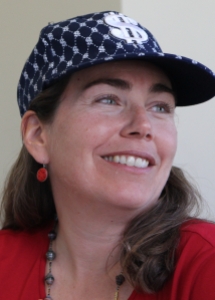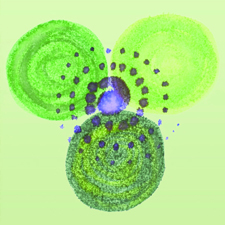
Director of Harvest Time and author of this guest blog
“What is your theory of social change and what does that have to do with money?”
That was a key question that emerged on the first day of Harvest Time’s annual board retreat. Knowing that our plans need to be anchored in a clear vision, John Bloom asked the big picture question.
A rich silence ensued. Then, for the first time, I was able to see and understand clearly what it is that we do at Harvest Time and why.
I remembered a talk at the 2012 SoCap conference in San Francisco. John Fullerton of Capital Institute (www.capitalinstitute.org) distinguished between three paradigms of social change.
One way that people and organizations try to effect social change, Fullerton said, is by working to solve specific problems. For example, we work to solve hunger in a particular community by creating a local food bank.
Another way to create change is to shift systems. For instance, we might work to prevent the injustice and environmental destruction that are consequences of capitalism by working to shift capitalism so those problems do not occur.
Yet another approach involves trying to shift consciousness.
For years I have known that Harvest Time is not a social activist organization. Our goal is NOT to move x amount of money to organizations that serve people who are poor (though that often happens as a byproduct of our work). And the organizational impulse to move to “scale” in order to have a wider impact has never grabbed my passion. Why? Because what I am most interested in is shifting consciousness, and I believe that happens best in small, committed, authentic spiritual community.
But how does this make social change?
My fundamental assumption is that Christ is present and active in history, working, among other ways, through individuals whose hearts have been opened and transformed. For me, the most effective way that we can transform society is by supporting people who seek their own conversion so that they can participate in the flow of Christ’s love and energy as it moves through the world.
This support begins with helping people learn to recognize the presence of Christ moving through their lives and hearts. That is a function of spiritual direction and of spiritual practice.
We then create opportunities for people to support each other as each finds the courage to participate in that presence. We need this support because the way of Christ’s love is not the ordinary way of the human ego or of human culture. In other words, there is a transformation process that needs to happen if we seek to align our lives with Christ, and in this transformation we need one another’s help.
That is the work of authentic Christian community and of transformative spiritual practices. When hearts are converted and open, the Holy Spirit can then flow with ease through the individual into their relationships and communities as love.
The conversion need not be dramatic. God can work through any of us at any time, no matter where we are on the journey. But I do believe that the more we are able to open our hearts, the more effectively we can be channels of God’s love.
I love the way Rumi puts it: “Our task is not to find love, but to find everything in us that blocks love and remove it.”
For us at Harvest Time, money is the practice place. It is a great practice place, because money sits at  the intersection between the person and society. It is exactly that place where so much individual and collective shadow is acted out in our culture. If you want to find your blocks to love, start paying attention to money and your relationship to it.
the intersection between the person and society. It is exactly that place where so much individual and collective shadow is acted out in our culture. If you want to find your blocks to love, start paying attention to money and your relationship to it.
And there is more. Because money is a symbol of our interconnectedness, the more we are able to shift our attitudes and relationship to money, the more the love of God can move into the world through us through our money.
What we do with money, what we value through it – how much we hold onto, how much and how we give, how we spend, how we invest – all of this changes as our hearts change and are opened. Money becomes more and more an expression of love and an agent of grace as God works through the converted heart.
This is why I think what we do in Harvest Time — gathering people in small circles to talk about money and engage in spiritual practice — is key to social change.
What do you think? What is your theory of social change?
This blog was written by Rosemary Feerick, Director of Harvest Time. Seeking help to align my heart and spirit and money, Harvest Time was one of the first places Howard and I turned after my family financial inheritance came to me. We have been in one of their retreat circles ever since, and both of us have served on the board (that is still true for me). Harvest Time is a ministry of “Christians of wealth engaging with money as a doorway to spiritual transformation.”